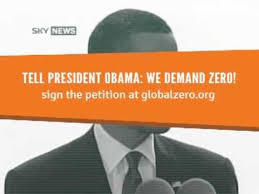Submitted by Board member, Barry Ladendorf of VFP Hugh Thompson Memorial Chapter 91 in San Diego, CA.

On December 2, 2009, the United Nations General Assembly unanimously passed a resolution declaring August 29 to be the International Day Against Nuclear Tests. It was hoped that the resolution would increase the public’s awareness and educate people everywhere “about the effects of nuclear weapons test explosions . . . and the need for their cessation as one of the means of achieving the goal of a nuclear-weapons-free world.”
In 1996, the United Nations General Assembly adopted the Comprehensive Test Ban Treaty (CTBT). This multilateral treaty requires states to ban all nuclear explosions in all environments, for military and civilian purposes. The treaty has not gone into force because eight nations, the United States, Israel, North Korea, China, India, Pakistan, Iran and Egypt, have either not ratified or not signed the treaty. And, yet it is fitting that the UN set aside a day to encourage its member states, NGOs and other institutions and the media to “inform, educate and advocate the necessity of banning nuclear weapons tests as a valuable step towards achieving a safer world.”
While the banning of nuclear weapons testing can move us toward a “safer world,” Veterans For Peace believes there is even a better way to a “safer” world and that is to eliminate nuclear weapons altogether. Hence, VFP continues to support the Marshall Islands lawsuits filed on April 24, 2014, in the United States District Court in San Francisco. The lawsuits seek to compel the United States to comply with its obligations under the Nuclear Non-Proliferation Treaty (NPT). VFP also supports the companion lawsuits filed in the International Court of Justice against all nine nuclear-armed countries for breaching their obligations under the NPT.
The NPT went into force in 1970, signed and/or ratified by 189 States Parties, making it the largest, legally binding, arms control treaty in the world. The three pillars of the NPT call for (1) nuclear armed states to negotiate in good faith for the reduction and ultimate elimination of nuclear weapons; (2) nations without nuclear weapons not to acquire them; and (3) all nations to have access to the peaceful use of nuclear energy.
While there have been significant reductions in the nuclear arsenals of the nuclear states, there are still more than 10,000 nuclear warheads in the possession of the nine nuclear-armed states with 90% of those weapons in the possession of the United States and Russia. Moreover, the world’s nuclear armed nations continue to modernize their nuclear arsenals and seem unwilling to consider the total elimination of such weapons. In the last two decades the United States has moved to upgrade and modernize its nuclear weapons and has spent $8 billion dollars on its Intercontinental Ballistic Missiles to extend their service life until 2030. According to the US Congressional Budget Office, the United States will spend $365 billion on the maintenance and modernization of its nuclear arsenal over the next 10 years with a projected cost of $1 trillion dollars over the next 30 years. This trend of modernization and the concurrent failure to eliminate nuclear weapons makes the Marshall Island lawsuits all the more important.
The Republic of the Marshalls, a nation that signed the NPT, has a particular and unique perspective on the issues of nuclear testing and nuclear disarmament. First, as a signatory nation to the NPT it is bound by the treaty’s constraints and obligations. Second, perhaps as much as any nation on Earth except Japan, the Marshall Islands have suffered directly from the effects of nuclear weapons. Between 1946 and 1958, the United States conducted 67 nuclear tests in the Marshall Islands. It is estimated that the explosive power of these tests was the equivalent of 1.7 Hiroshima bombs dropped daily for 12 years. The testing has had a devastating impact on the health and environment of the people of the Marshall Islands. Who better than the Marshall Islanders to bring to task the United States and the other nuclear armed nations? In an already dangerous world, we continue to be held hostage to the whims, miscalculations, bluffs and errors of judgment of those who are the keepers of these weapons and presumedly are prepared to use them.
As Veterans For Peace, we seek to “end the arms race and to reduce and eventually eliminate nuclear weapons.” Let us continue to support the Marshall Islanders and call upon the United States government to accept the jurisdiction of the International Court of Justice and the Federal District Court so that this issue can be decided on the merits. Let us also call on the United States to cast aside the modernization of nuclear weapons, and begin the process of negotiating in good faith to end the arms race and eliminate nuclear weapons. Without the presence of nuclear weapons, rather than set aside August 29 as the International Day Against Nuclear Testing, this day can become a day for the peoples of the world to join together to commemorate the day when nuclear weapons no longer exist. This is the day we must always strive to achieve.

